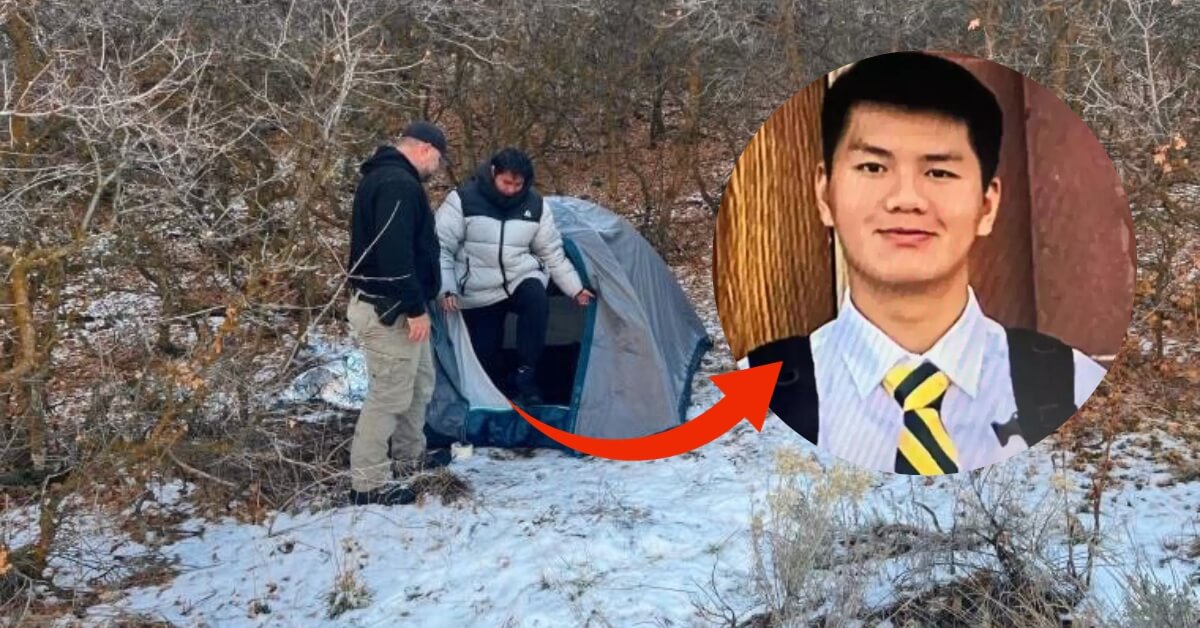Add to cart– sitting in the comfort of our homes, enjoying the virtual world, and the privilege of online transactions, the digitalization of our lives couldn’t have been better. While we benefit from this binary algorithm, the real world has gotten more greyer.
Just to give an estimation of the grave reality, the Federal Trade Commission revealed that Americans have lost $8.8 billion in cyber scams in 2022 alone.
In today’s fast-paced, interconnected world, where virtual reality often blurs with the actual, a new form of crime is emerging, redefining fear and safety. But what happens when the lines between digital deception and real-world terror blur?
This is the strange, almost unbelievable tale of Kai Zhuang, a 17-year-old Chinese exchange student whose recent experience poses a chilling question: Are we witnessing the dawn of a new era in crime?
The nightmare of the American dream: a young, bright student miles away from home, suddenly entangled in a sinister plot that bridges continents, involving ruthless scammers, a terrified family, and law enforcement agencies scrambling to connect the dots. This saga not only highlights the evolving nature of crime in our digital age but also throws light on a vulnerable demographic that’s increasingly finding itself in the crosshairs of cybercriminals.
Cyber kidnapping is a chilling new trend where scammers, operating from remote locations, manipulate their victims into believing their safety or that of their loved ones is at stake. They then demand ransom, often using sophisticated digital tools to weave a convincing narrative of danger and desperation.
Kai Zhuang fell prey to cyber kidnapping, with a total extortion money of $80,000 from his family. In much despair, Kai was found distressed and scared in a tent on December 31, in the chilling winters of Utah.
The Web of Deceit: How Kai Zhuang Was Entrapped In An Elaborate Cyber Kidnapping?
Let’s unravel the complex web that ensnared Kai. According to Riverdale Police Chief Casey Warren, “Kai’s ordeal began with continuous threats from unknown kidnappers, leading him to isolate himself in the Utah wilderness.”
The kidnappers convinced Kai that his family in China would be harmed unless he complied. This sophisticated scam involved him sending staged distress images to his family, who, under immense fear, transferred about $80,000 to Chinese bank accounts.
Meanwhile, the host family has been unaware of Kai’s absence since they last saw him in their kitchen on Wednesday morning.
In a stroke of luck, a sergeant hiking up the mountain found an isolated tent in the cold temperatures. Although it may look unsuspecting initially, the concern grew when he saw that the tent lacked any heat source and had only a heat blanket, a sleeping bag, and very few food supplies.
The sergeant called for help, and Kai was rescued from months of mental torture at the hands of scammers. The Riverdale Police Department stated–
“Due to the cold weather in Utah this time of year, we became additionally concerned for the victim’s safety in that he may freeze to death overnight.”
How Cyber Crimes Affect The Individual And Family: Kai Zhuang Case
As the Riverdale Police and Weber County Sheriff’s Office delved deeper, using bank and phone data, they uncovered a disturbing pattern targeting foreign exchange students, particularly from China. These ‘cyber kidnappings’ often involve victims being coerced to isolate themselves and simulate captivity situations. Warren adds,
“It’s a disturbing criminal trend, with the FBI noting similar cases across the nation.”
Kai Zhuang’s story is a wake-up call, a reminder that in our rapidly evolving digital world, new threats lurk around every corner, often where we least expect them.
But why are students like Kai particularly vulnerable? Is it their relative isolation, their eagerness to comply for fear of their family’s safety, or something more insidious in our increasingly digital society?
As we ponder over Kai’s ordeal, a few questions linger. How can individuals, especially young students in foreign lands, safeguard themselves against such sophisticated scams? What role can educational institutions and host families play in ensuring the safety and awareness of their international wards?
In an age where our digital footprints are as accurate as our physical ones, how do we balance the convenience of connectivity with the inherent risks it poses?
Share your opinions in the comments section below.

